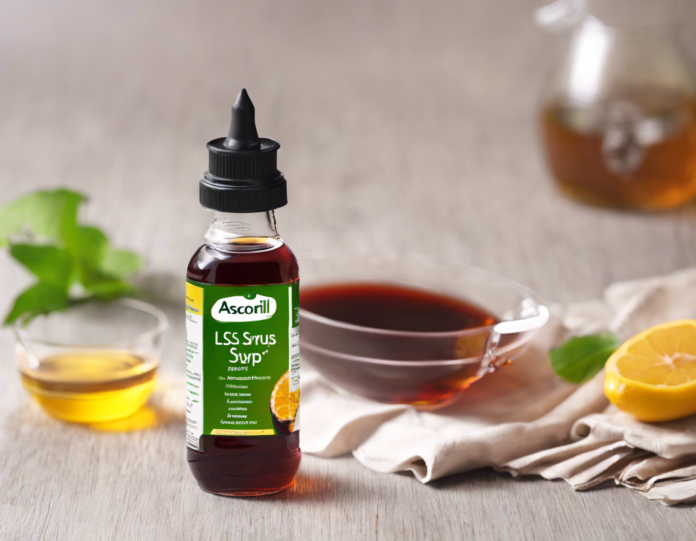Introduction
Ascoril LS syrup is a well-known medication used for the treatment of various respiratory conditions. It is a combination medicine that contains levosalbutamol, ambroxol, and guaifenesin, each playing a specific role in alleviating cough, chest congestion, and breathing difficulties. This comprehensive guide will delve into the uses, dosage, side effects, precautions, and frequently asked questions related to Ascoril LS syrup.
Understanding Ascoril LS Syrup
Ascoril LS syrup is primarily used to treat conditions such as:
1. Cough: Levosalbutamol in the syrup acts as a bronchodilator, helping to relax the muscles in the airways and alleviate coughing.
2. Chest Congestion: Ambroxol is a mucolytic agent that aids in thinning and loosening mucus in the airways, making it easier to clear the congestion.
3. Breathing difficulties: Guaifenesin works as an expectorant, facilitating the expulsion of mucus from the respiratory tract, thus easing breathing difficulties.
Dosage and Administration
It is crucial to follow the prescribed dosage and administration instructions provided by a healthcare provider. Typically, the recommended dosage for adults is 5ml of Ascoril LS syrup three times a day. Children should be given a lower dosage based on their age and weight. It can be taken with or without food, but it is advisable to avoid taking it with dairy products.
Side Effects
While Ascoril LS syrup is generally well-tolerated, some individuals may experience side effects such as nausea, vomiting, headache, dizziness, or diarrhea. If any of these side effects persist or worsen, it is essential to seek medical attention promptly. In rare cases, severe allergic reactions may occur, leading to breathing difficulties, rash, or swelling. Immediate medical assistance is imperative in such situations.
Precautions
Before using Ascoril LS syrup, it is crucial to inform your healthcare provider about any existing medical conditions, allergies, or medications you are currently taking. This will help prevent potential drug interactions or adverse effects. Pregnant or breastfeeding women should seek medical advice before using this medication to ensure its safety for both the mother and the baby.
FAQs (Frequently Asked Questions)
1. Can Ascoril LS syrup be used for a dry cough?
– Ascoril LS syrup is more effective for a productive cough that involves the production of mucus. For a dry cough, other medications may be more suitable.
2. Can Ascoril LS syrup be taken on an empty stomach?
– It is generally safe to take Ascoril LS syrup on an empty stomach. However, if it causes stomach upset, it can be taken with food.
3. How quickly does Ascoril LS syrup work?
– The onset of action of Ascoril LS syrup may vary from person to person. Some individuals may experience relief within a few hours, while others may take a day or two to notice significant improvement.
4. Is it safe to give Ascoril LS syrup to children?
– Ascoril LS syrup can be given to children, but the dosage should be adjusted based on their age and weight. It is essential to consult a pediatrician before administering the syrup to children.
5. Can Ascoril LS syrup be used for asthma?
– Ascoril LS syrup can help alleviate symptoms of asthma, such as coughing and breathing difficulties. However, it is not a primary treatment for asthma and should be used under the guidance of a healthcare provider.
In conclusion, Ascoril LS syrup is a valuable medication for tackling cough, chest congestion, and breathing difficulties. By understanding its uses, dosage, side effects, and precautions, individuals can maximize the benefits of this medication while minimizing potential risks. As always, it is essential to consult a healthcare provider for personalized recommendations and guidance on the use of Ascoril LS syrup.








